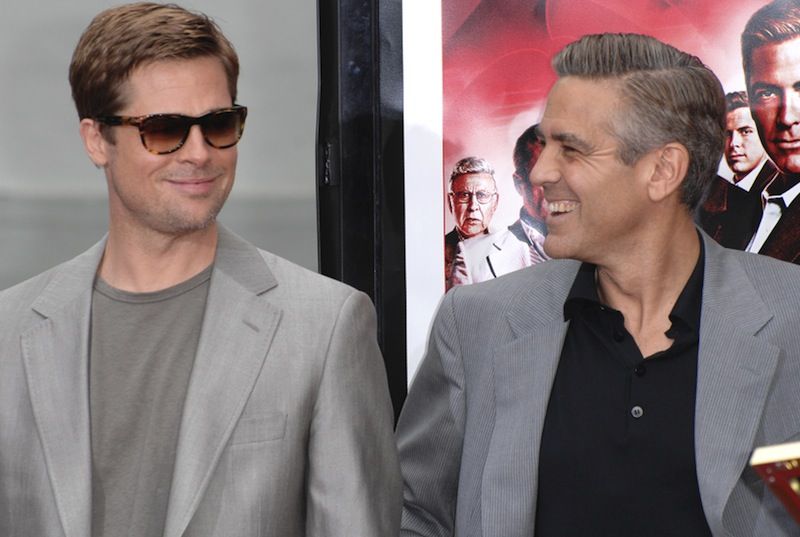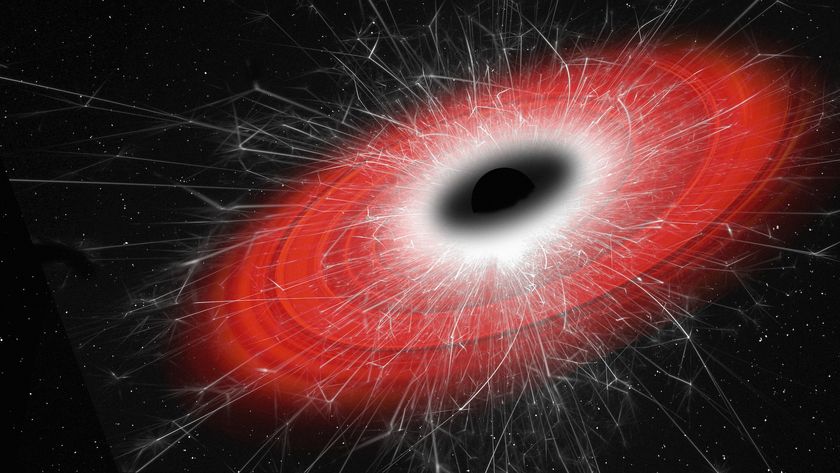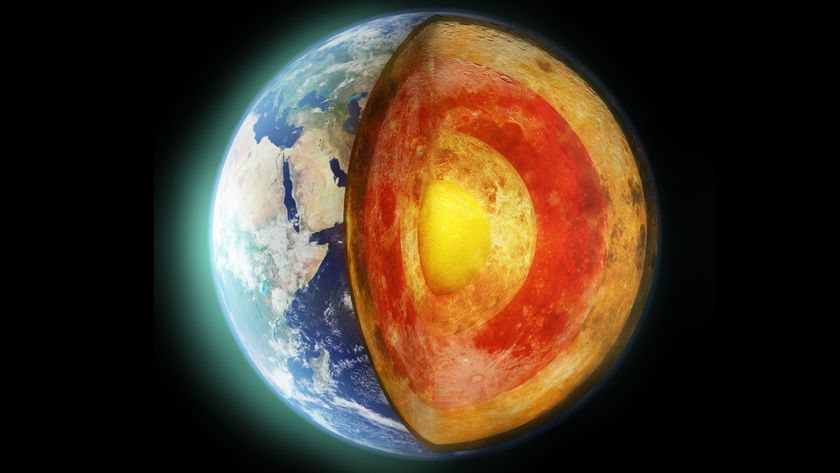Oscar Psychology: Why Celebrities Fascinate Us

From the Oscar's red carpet to the tabloids lining supermarket checkout lines, celebrity obsession is everywhere. Even the most casual moviegoer might find him or herself flipping through a slideshow of Academy Award fashion after the big event. So why do we fixate on celebrities?
In most cases, it's perfectly natural. Humans are social creatures, psychologists say, and we evolved — and still live — in an environment where it paid to pay attention to the people at the top. Celebrity fascination may be an outgrowth of this tendency, nourished by the media and technology.
"In our society, celebrities act like a drug," said James Houran, a psychologist at the consulting firm HVS Executive Search who helped create the first questionnaire to measure celebrity worship. "They're around us everywhere. They're an easy fix."
The evolution of an Oscar viewer
It's only relatively recently in human history that people have had near-constant access to celebrity news and gossip. But celebrities themselves are nothing new. People have long looked to monarchs for social, and even fashion, cues: The now-ubiquitous white wedding dress caught on after Queen Victoria wore one in 1840.
Even hunter-gatherer societies in which material goods are relatively scarce have status hierarchies, said Daniel Kruger, an evolutionary psychologist at the University of Michigan. Other primate species also keep a close eye on the dominant individuals in their groups.
"There's a few different reasons for that," Kruger told LiveScience. "One is just learning what high-status individuals do so you might more effectively become one, and two, it's basically political. Knowing what is going on with high-status individuals, you'd be better able to navigate the social scene."
Sign up for the Live Science daily newsletter now
Get the world’s most fascinating discoveries delivered straight to your inbox.
Whether Brad Pitt is on good terms with his ex Jennifer Aniston isn't likely to affect the average person's life one way or another, of course, but the social tendency to care is deeply ingrained, Kruger said. [Glitzy Oscar Facts (Infographic)]
Twittering stars
Stars and the media exploit this tendency. Celebrities give interviews, share juicy information about their personal lives, and even engage directly with fans on sites such as Twitter. The result is that "parasocial" relationships — the psychological term for the kind of one-sided relationships fans have with stars — are easier than ever.
And reaching stardom seems also to be easier than ever. "You have so many opportunities for celebrities to develop, because there are so many platforms," said Stuart Fischoff, an emeritus professor of media psychology at the University of California, Los Angeles. "There's this explosion of celebrity possibility."
Much celebrity obsession is intentionally cultivated, Kruger said. Talk show hosts, for example, try to foster a personal connection with their audience.
"It's savvy marketing," Kruger said.
From fan to fanatic
Most of the time, caring about celebrities is no big deal. Even for some obsessed fans, celebrity worship can provide a social outlet they wouldn't have otherwise had, Fischoff told LiveScience. For the seriously shy, celebrity fandom can act as a "psychological prosthesis," he said.
"If they weren't going to be interacting with people otherwise, this makes them at least have a social relationship they didn't have before," Fischoff said. "So it's making the best out of a bad deal, psychologically."
There are lines, though. Houran and his colleagues found that it's too simplistic to divide fans into casual, healthy types and wild-eyed stalkers. In fact, celebrity worship is a continuum, Houran told LiveScience.
"The bad news is, there's a stalker in all of us," he said.
When celebrity worship goes overboard, it usually starts out benign, Houran said. People enjoy the escapism of celebrity gossip and bond with others over a favorite star. Next, there's a shift. The person starts thinking of the celebrity constantly, withdrawing from family and friends. Addictive and compulsive behaviors come into play.
Finally, a very few people reach what's known as the "borderline pathological" stage, in which they believe they have a close relationship with their favorite celebrity and take that belief quite seriously. When asked if they'd do something illegal at the request of their favorite celebrity, these people say "yes."
Personality plays a role in pushing people along the path to celebrity stalker-hood, Houran said. People who are egocentric or who have personality traits such as irritability, impulsivity and moodiness are more susceptible. The environment matters, too. People are more susceptible to over-the-top celebrity worship when they're in a phase of identity adjustment. If a person is going through a divorce, loses a job or is having relationship problems, celebrity obsession may be a life raft they cling to.
This identity factor may be why teenagers are so susceptible to worshipping Justin Bieber or their favorite sports star. Younger people, who are still establishing their identities, are more susceptible to celebrity obsession, Houran said. [10 Teen Brain Facts]
"Celebrity worship, at its heart, seems to fill something in a person's life," he said. "It gives them a sense of identity, a sense of self. It feeds a psychological need.
You can follow LiveScience senior writer Stephanie Pappas on Twitter @sipappas. Follow LiveScience for the latest in science news and discoveries on Twitter @livescience and on Facebook.

Stephanie Pappas is a contributing writer for Live Science, covering topics ranging from geoscience to archaeology to the human brain and behavior. She was previously a senior writer for Live Science but is now a freelancer based in Denver, Colorado, and regularly contributes to Scientific American and The Monitor, the monthly magazine of the American Psychological Association. Stephanie received a bachelor's degree in psychology from the University of South Carolina and a graduate certificate in science communication from the University of California, Santa Cruz.











